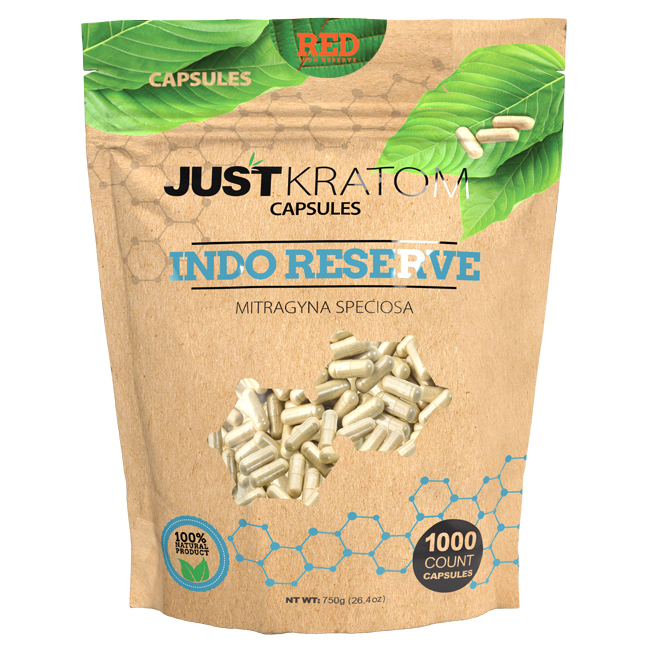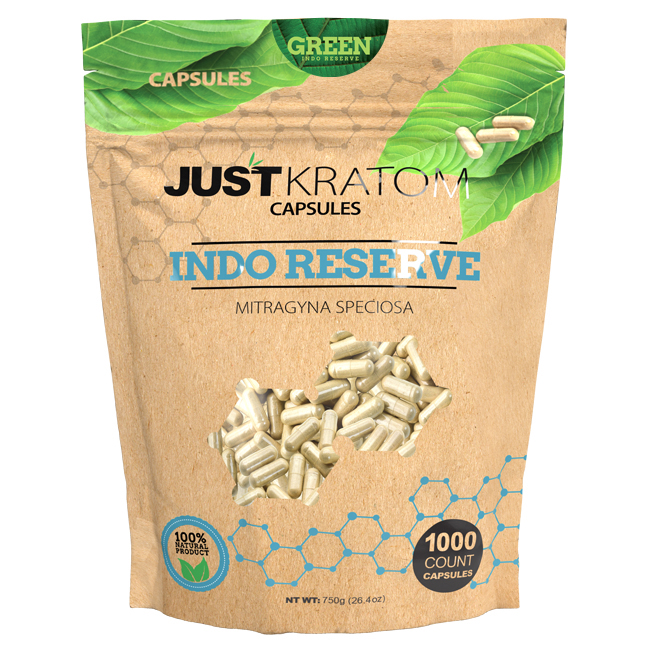Understanding Kratom’s Effects on Anxiety
Anxiety is a pervasive issue affecting millions worldwide, leading to significant distress and impairment in daily life. Individuals often seek natural alternatives to manage their anxiety symptoms, prompting growing interest in kratom, a botanical substance with purported mood-altering effects. Kratom capsules are becoming increasingly popular as a potential source of relief for those struggling with anxiety.
Kratom Alkaloids and their Role
Kratom’s potential anxiolytic effects are thought to stem from its complex chemical composition, specifically the presence of kratom alkaloids. These alkaloids interact with various neurotransmitter systems in the brain, including the opioid and serotonin receptors. Mitragynine and 7-hydroxymitragynine are two prominent alkaloids associated with kratom’s potential benefits for anxiety. Mitragynine is believed to act as a partial agonist at mu-opioid receptors, potentially reducing feelings of stress and tension. 7-Hydroxymitragynine appears to have agonistic effects on serotonin 5-HT2A receptors, which may contribute to mood elevation and anxiety reduction.
Mechanism of Action in the Brain
The precise mechanisms by which kratom exerts its anxiolytic effects are still under investigation. However, current research suggests that the interaction of kratom alkaloids with certain neurotransmitter systems in the brain plays a key role.

Kratom’s alkaloids, notably mitragynine and 7-hydroxymitragynine, bind to receptors involved in mood regulation. Mitragynine appears to act as a partial agonist at mu-opioid receptors, which are associated with pain perception, pleasure, and stress response. By activating these receptors, mitragynine may contribute to feelings of relaxation and reduced anxiety.
7-Hydroxymitragynine, on the other hand, demonstrates agonistic effects on serotonin 5-HT2A receptors. These receptors are implicated in mood, perception, and cognition. Stimulation of these receptors by 7-hydroxymitragynine may contribute to feelings of well-being and anxiety relief.
Potential Benefits for Anxiety Disorders
Kratom’s potential benefits for anxiety are thought to arise from its complex chemical composition, specifically its alkaloids. Mitragynine and 7-hydroxymitragynine, two prominent alkaloids, interact with neurotransmitter systems in the brain, influencing mood and stress response.
Mitragynine is believed to act as a partial agonist at mu-opioid receptors, potentially reducing feelings of stress and tension. These receptors are associated with pain perception, pleasure, and the body’s stress response. By partially activating these receptors, mitragynine may contribute to feelings of relaxation and reduced anxiety.
7-Hydroxymitragynine, on the other hand, appears to have agonistic effects on serotonin 5-HT2A receptors, which play a role in mood, perception, and cognition. Stimulation of these receptors by 7-hydroxymitragynine may contribute to feelings of well-being and anxiety relief.
Forms of Kratom Consumption
Kratom has emerged as a potential natural remedy for anxiety, with capsules gaining popularity as a convenient consumption method.
Powdered Kratom vs. Capsules
Kratom is available in various forms, including powdered kratom and capsules. Each form has its own advantages and disadvantages.
- Powdered kratom allows for precise dosing and can be consumed in multiple ways, such as mixing it with drinks or food. However, the taste of powdered kratom can be bitter, and some users may find it unpleasant.
- Kratom capsules offer a more convenient and discreet option, as they mask the taste and allow for pre-measured doses. This makes them a popular choice for people who prefer a simpler and more consistent experience.
Dosage Considerations for Anxiety Relief
When considering kratom for anxiety relief, choosing the appropriate dosage is crucial. The effective dose can vary significantly depending on individual factors such as body weight, metabolism, and tolerance. It’s generally recommended to start with a low dose (around 2-5 grams of powder or one capsule) and gradually increase it until desired effects are achieved.
It’s important to note that kratom can have different effects depending on the strain and alkaloid profile. Some strains are known to be more sedating, while others may promote energy and alertness. Researching different strains and their potential effects can help individuals find a suitable option for managing anxiety.
It’s essential to approach kratom use with caution and prioritize safety. Consulting with a healthcare professional before using kratom is recommended, especially for those with underlying health conditions or taking other medications.
Choosing Reputable Suppliers
Kratom is available in various forms, including powdered kratom and capsules. Each form has its own advantages and disadvantages.
Powdered kratom allows for precise dosing and can be consumed in multiple ways, such as mixing it with drinks or food. However, the taste of powdered kratom can be bitter, and some users may find it unpleasant.
Kratom capsules offer a more convenient and discreet option, as they mask the taste and allow for pre-measured doses. This makes them a popular choice for people who prefer a simpler and more consistent experience.
Choosing a reputable supplier is crucial when purchasing kratom. Look for suppliers that provide detailed information about their products, including strain origin, testing procedures, and alkaloid content. Transparency and third-party lab testing are indicators of quality and reliability.
It’s also important to check customer reviews and online forums to get insights into the experiences of other kratom users.
Safety and Potential Risks
While kratom shows promise as a natural anxiolytic, it’s essential to be aware of potential risks associated with its use. Kratom can interact with certain medications and may have adverse effects on individuals with pre-existing health conditions.
Side Effects Associated with Kratom Use
Like any substance, kratom carries potential risks and side effects.
These can range from mild to severe, depending on the dose, individual sensitivity, and other factors.
Possible side effects of kratom use include nausea, vomiting, constipation, dizziness, itching, dry mouth, increased heart rate, and sweating. In some cases, kratom can cause more serious complications such as liver damage, seizures, or respiratory depression.
Long-term kratom use may lead to dependence or addiction, particularly with frequent or high doses.
It’s crucial to start with a low dose and gradually increase it as needed while monitoring for any adverse reactions.
Drug Interactions and Contraindications
Kratom’s potential risks and drug interactions need careful consideration. Individuals should be aware that kratom can interact with various medications, including opioids, antidepressants, and blood thinners.
It’s crucial to consult a healthcare professional before using kratom, especially if taking other medications or having pre-existing health conditions such as liver or kidney disease, heart problems, or mental health disorders.
Kratom can exacerbate existing medical conditions and potentially lead to dangerous complications.
Pregnant or breastfeeding women should avoid using kratom due to the potential risks to the fetus or infant.
Long-Term Effects and Dependence Risks
While kratom shows promise as a natural anxiolytic, it’s essential to be aware of potential risks associated with its use. Kratom can interact with certain medications and may have adverse effects on individuals with pre-existing health conditions.
Like any substance, kratom carries potential risks and side effects. These can range from mild to severe, depending on the dose, individual sensitivity, and other factors.
Possible side effects of kratom use include nausea, vomiting, constipation, dizziness, itching, dry mouth, increased heart rate, and sweating. In some cases, kratom can cause more serious complications such as liver damage, seizures, or respiratory depression.
Long-term kratom use may lead to dependence or addiction, particularly with frequent or high doses. It’s crucial to start with a low dose and gradually increase it as needed while monitoring for any adverse reactions.
Kratom’s potential risks and drug interactions need careful consideration. Individuals should be aware that kratom can interact with various medications, including opioids, antidepressants, and blood thinners.
Pregnant or breastfeeding women should avoid using kratom due to the potential risks to the fetus or infant.
Alternative Therapies Alongside Kratom
Anxiety affects millions worldwide, leading many to seek natural remedies. Kratom, a botanical substance with purported mood-altering effects, has gained popularity as a potential solution for anxiety. Kratom capsules offer a convenient and discreet method of consumption for individuals exploring this natural approach to managing anxiety symptoms.
Mindfulness Practices and Stress Management Techniques
Anxiety affects millions worldwide, leading many to seek natural remedies. Kratom, a botanical substance with purported mood-altering effects, has gained popularity as a potential solution for anxiety. Kratom capsules offer a convenient and discreet method of consumption for individuals exploring this natural approach to managing anxiety symptoms.
While kratom shows promise as a natural anxiolytic, it’s essential to be aware of potential risks associated with its use. Kratom can interact with certain medications and may have adverse effects on individuals with pre-existing health conditions.
- Alternative therapies alongside kratom can play a supportive role in managing anxiety.
- Mindfulness practices, such as meditation and deep breathing exercises, can help reduce stress and promote relaxation.
- Regular exercise can improve mood, reduce anxiety symptoms, and enhance overall well-being.
- Yoga and tai chi combine physical movement with mindfulness, promoting both physical and mental health.
- Stress management techniques, like time management strategies, prioritizing self-care, and building healthy coping mechanisms, are crucial for long-term anxiety management.
Lifestyle Changes for Anxiety Reduction
Anxiety is a pervasive issue affecting millions worldwide, leading many to seek natural remedies. Kratom, a botanical substance with purported mood-altering effects, has gained popularity as a potential solution for anxiety. Kratom capsules offer a convenient and discreet method of consumption for individuals exploring this natural approach to managing anxiety symptoms.
While kratom shows promise as a natural anxiolytic, it’s essential to be aware of potential risks associated with its use. Kratom can interact with certain medications and may have adverse effects on individuals with pre-existing health conditions. Alternative therapies alongside kratom can play a supportive role in managing anxiety.
- Mindfulness practices, such as meditation and deep breathing exercises, can help reduce stress and promote relaxation.
- Regular exercise can improve mood, reduce anxiety symptoms, and enhance overall well-being.
- Yoga and tai chi combine physical movement with mindfulness, promoting both physical and mental health.
- Stress management techniques, like time management strategies, prioritizing self-care, and building healthy coping mechanisms, are crucial for long-term anxiety management.
Professional Counseling and Therapy
Kratom capsules have become increasingly popular as a potential natural remedy for anxiety. However, it’s important to remember that kratom is a substance with its own set of risks and potential interactions. Individuals struggling with anxiety should consider exploring alternative therapies alongside kratom use to create a comprehensive approach to managing their symptoms.
Mindfulness practices like meditation and deep breathing exercises can be incredibly effective in reducing stress and promoting relaxation. Regular exercise is another beneficial tool, as it has been shown to improve mood, reduce anxiety symptoms, and enhance overall well-being. Yoga and tai chi combine physical movement with mindfulness, offering both physical and mental health benefits.
In addition to these practices, implementing effective stress management techniques is crucial for long-term anxiety management. This can include strategies like time management, prioritizing self-care, and building healthy coping mechanisms.
Professional counseling and therapy are also highly recommended for individuals dealing with anxiety. A therapist can provide personalized guidance, support, and evidence-based treatments tailored to an individual’s specific needs and circumstances. They can help develop coping skills, explore underlying causes of anxiety, and create a plan for managing symptoms effectively.
Legal Status and Regulations of Kratom

The legal status and regulations surrounding kratom vary significantly depending on the country or region. In some countries, it is completely banned, while in others it is legal with varying restrictions. In the United States, kratom’s legal status is complex and varies from state to state. Some states have outright bans, while others have legalized it for personal use. Federal law currently does not explicitly prohibit kratom, but the Drug Enforcement Administration (DEA) has attempted to classify it as a Schedule I controlled substance, which would make it illegal. However, these efforts have faced legal challenges and have not been successful.
Current Legal Landscape in Different Countries
The legal status of kratom is complex and varies greatly around the world. In some countries, it is completely banned, while in others, its use and sale are regulated or unrestricted.
In the United States, kratom’s legal standing is a patchwork of state-level regulations. Some states have outright bans on kratom, while others permit its sale and possession for personal use. The federal government has attempted to classify kratom as a Schedule I controlled substance, but these efforts have been met with legal challenges and have not resulted in a nationwide ban.
In Europe, kratom is generally viewed as a novel substance and subject to varying regulations depending on the specific country. Some European countries have banned kratom outright, while others allow its sale and use under certain restrictions.
Australia and Canada have also implemented regulations surrounding kratom. Both countries consider kratom to be a controlled substance with restrictions on its import, possession, and sale.
It is important for individuals interested in using kratom to research the specific laws and regulations in their country or region to ensure compliance.
Potential for Future Legislation and Regulation
The legal status of kratom is a complex and evolving issue.
Currently, kratom’s legal status varies greatly depending on location. Some countries have completely banned it, while others allow its sale and use with varying restrictions. In the United States, kratom’s legal status is a patchwork of state-level regulations. Some states have outright bans, while others permit its sale and possession for personal use. Federal law does not currently explicitly prohibit kratom, but the Drug Enforcement Administration (DEA) has attempted to classify it as a Schedule I controlled substance. However, these efforts have faced legal challenges and have not been successful.
Given the constantly changing legal landscape surrounding kratom, staying informed about the specific regulations in your region is crucial. Consulting legal resources or contacting relevant authorities can provide up-to-date information on kratom’s legal status where you live.
The future of kratom regulation remains uncertain. Ongoing research into its potential benefits and risks will likely influence legislative decisions. Some advocate for greater legalization and oversight, while others support stricter control measures. Public opinion, scientific findings, and lobbying efforts from various stakeholders will all play a role in shaping the future of kratom regulation.
Get premium Kratom capsules from Just Kratom
- Vista Edge Vape For Beginners: How To Avoid Common Mistakes - June 2, 2025
- Redensity 1 Skin Booster Treatments Near Bramley, Surrey - June 1, 2025
- Skin Treatment & Skincare Consultations Near Bletchingley, Surrey - June 1, 2025
